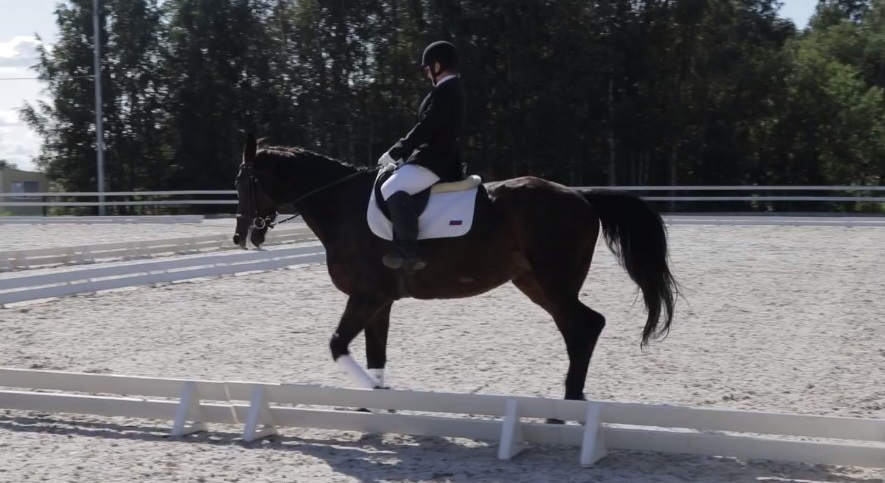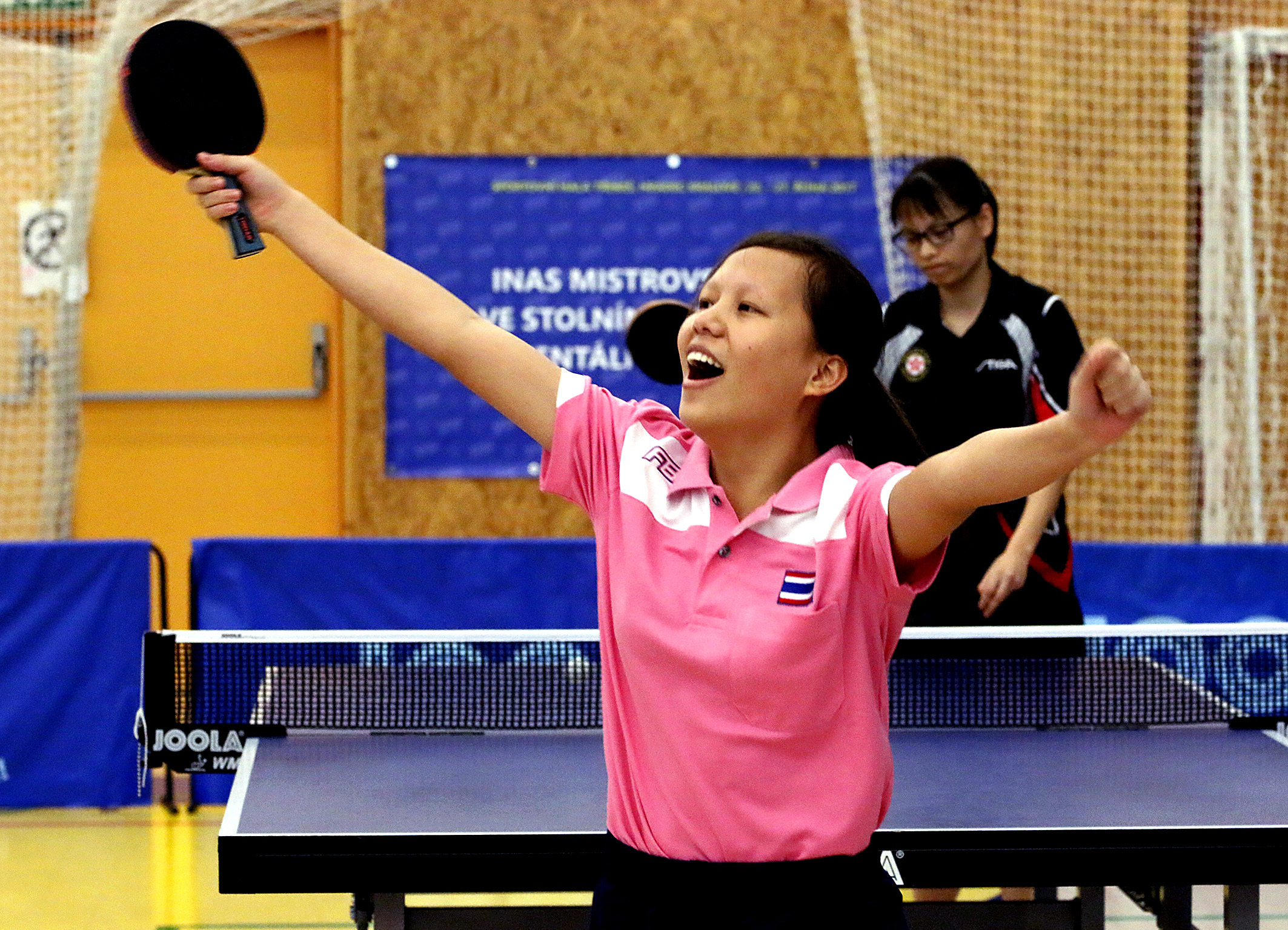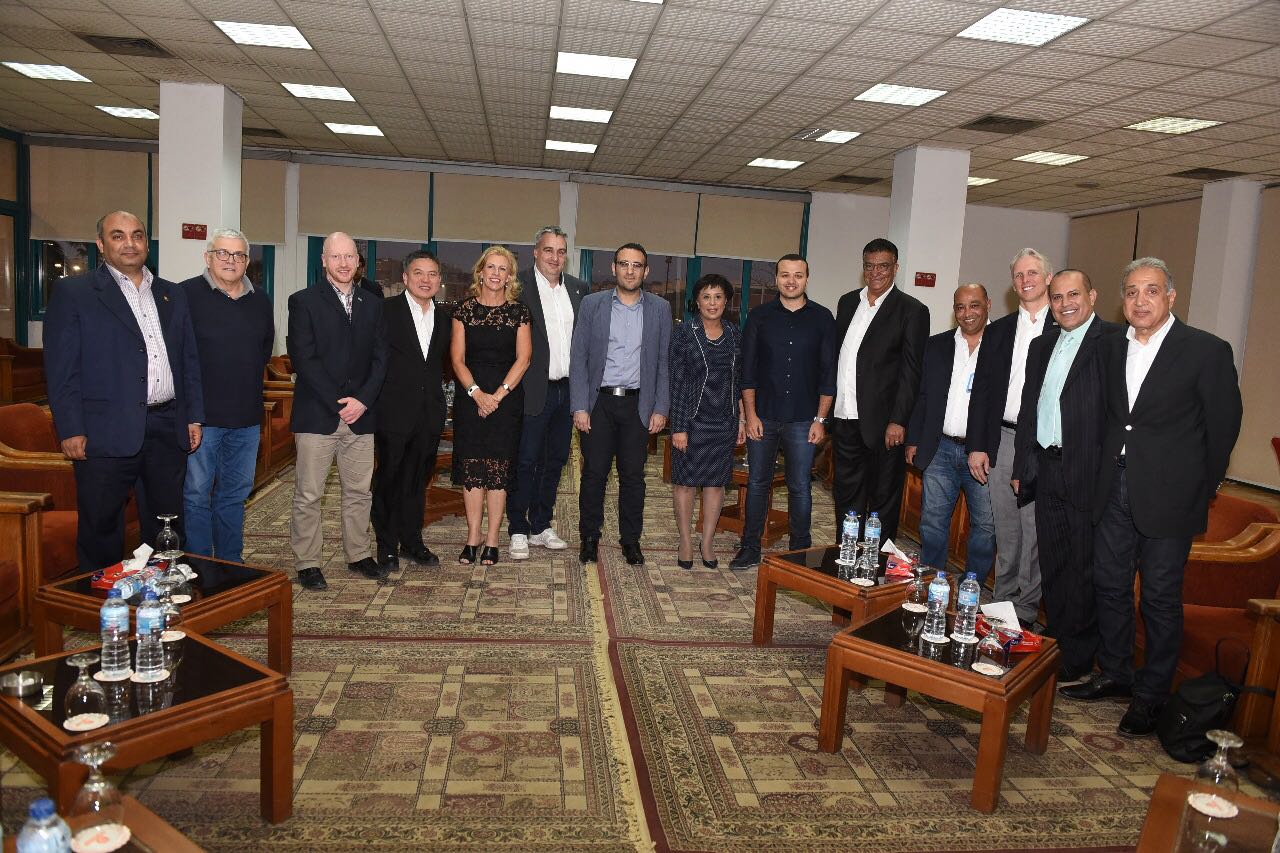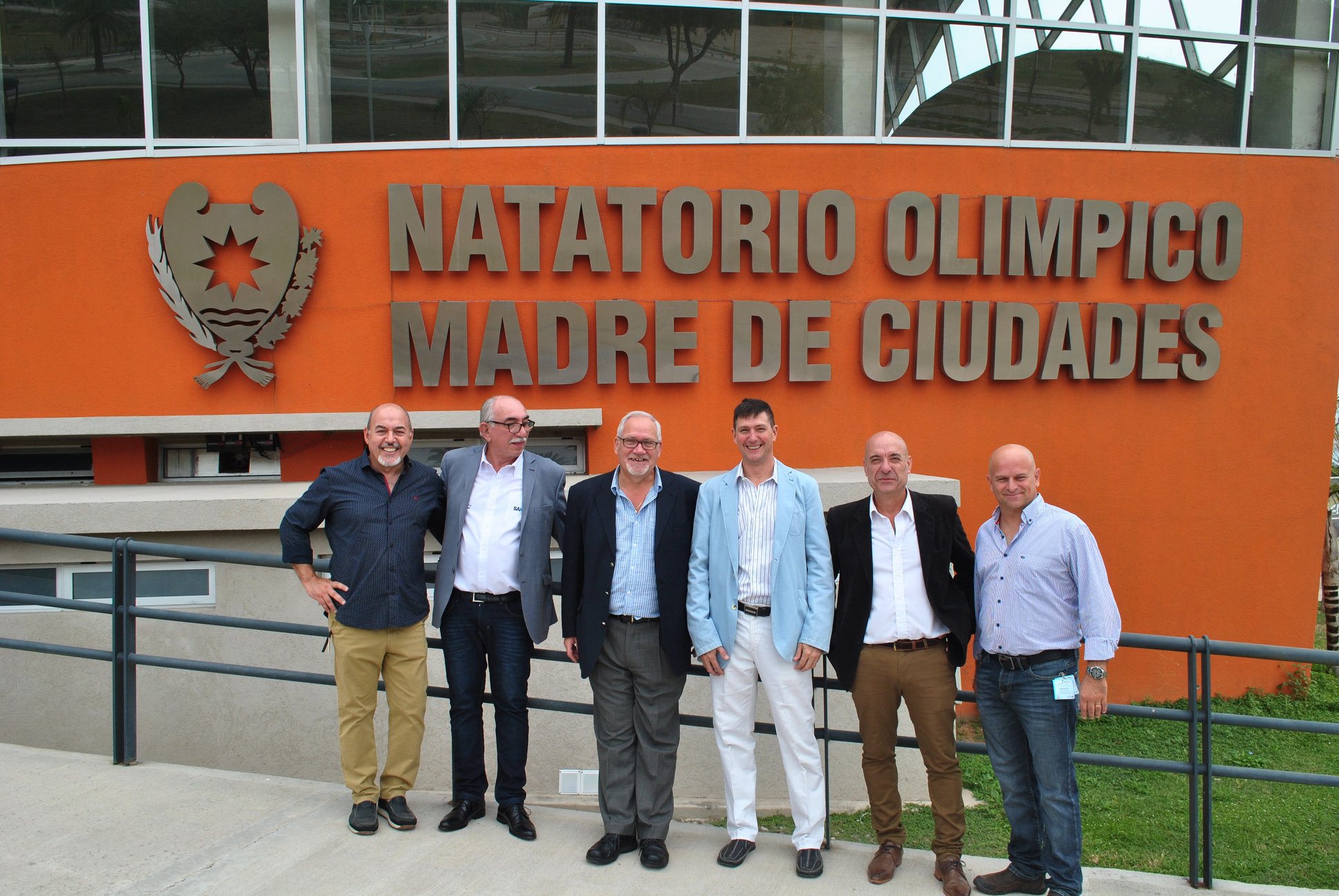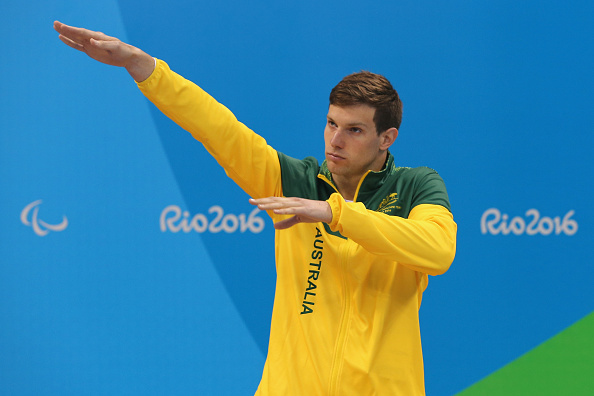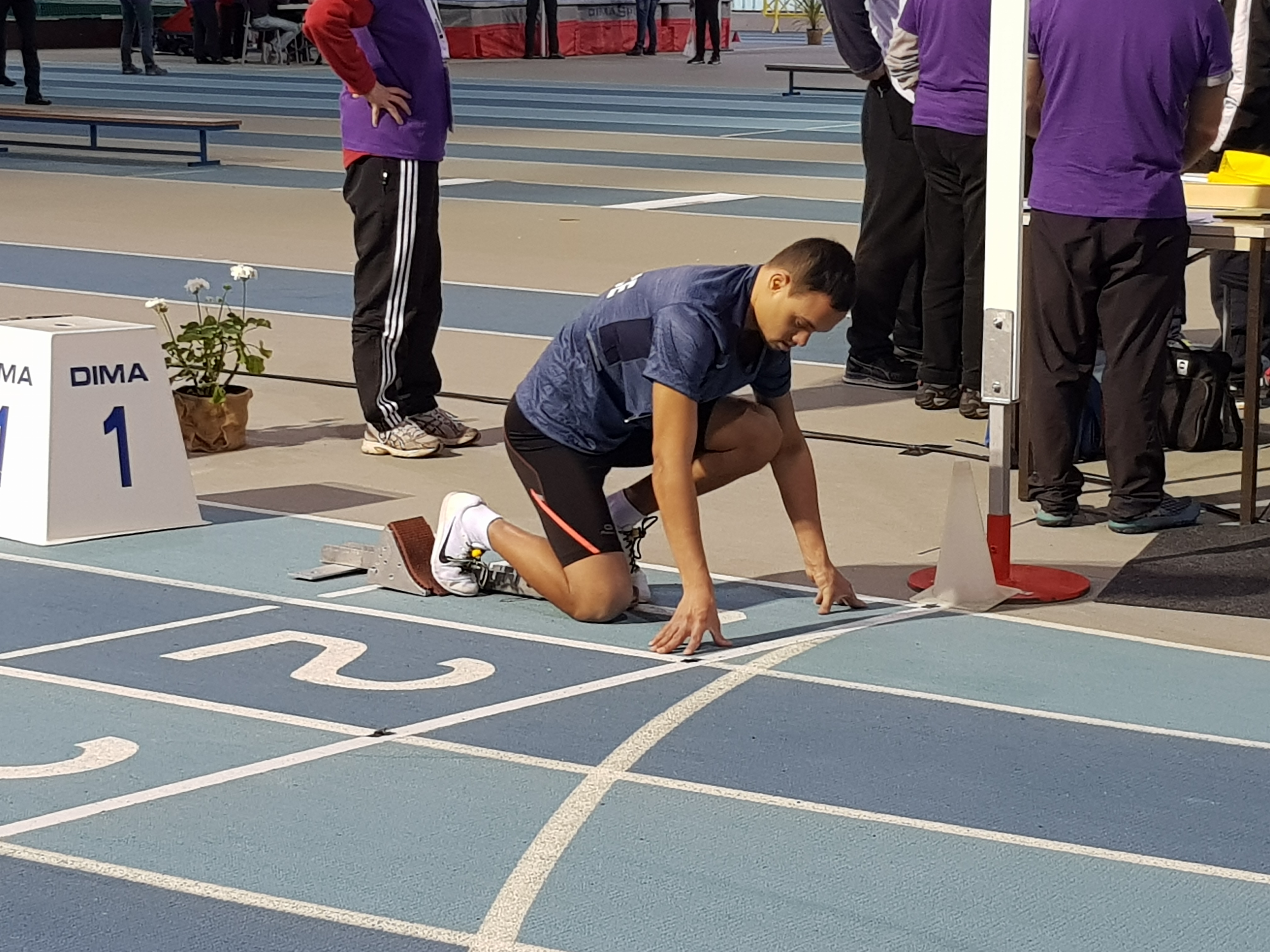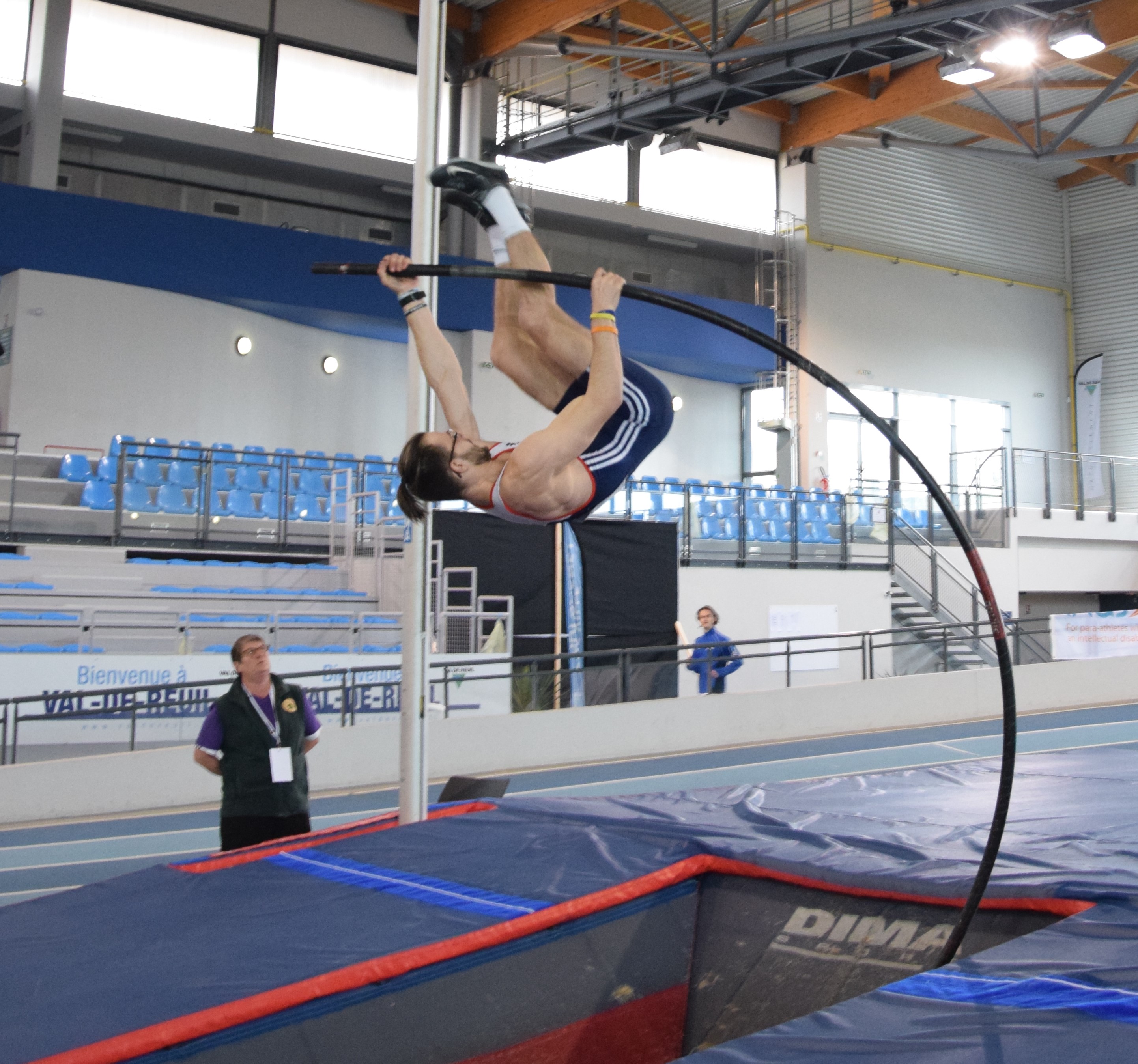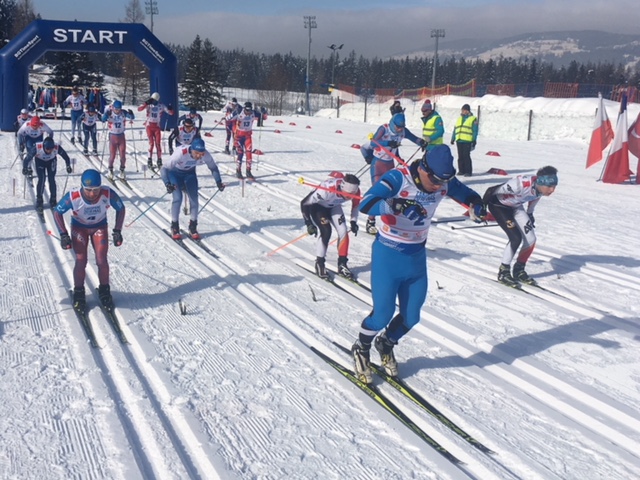Norway’s Bjorn Oivind Berger broke the men’s pole vault II1 world record at the 2018 International Federation for Athletes with Intellectual Impairments (World Intellectual Impairment Sport) Indoor Athletics Championships on Saturday (3 March) with a 4.75m leap.
Adding 4cm onto his previous best from the 2017 World Intellectual Impairment Sport Athletics European Indoor Championships, Berger comfortably cleared the bar to take gold in Val-de-Reuil, France.
Buoyed by his form the Norwegian went on to attempt 4.85m but was unsuccessful.
“I think today it went very well. I was very good in the first jump on the 4.85 but I did not get far enough forward, but it’s ok,” he said.
He has vowed to come back even stronger for the 2018 World Intellectual Impairment Sport European Games in Paris, France.
“If I train well at home and correct I think I can take this [another world record] too.”
Spain’s Franci Perez Carrera cleared 3m to take silver. France’s Daniel Royer (2.60m), the silver medallist from 2016 in Ancona, Italy, was third.
Russia bagged a further two golds and a second world record on Saturday.
It was a family affair in the women’s 3,000m race walk II1 with Alina Khokhlova claiming the world record. The Russian impressed with a time of 14:59.19.
Her sister Regina (15:40.62) joined her on the podium with silver. France’s Virginie Dreux (19:04.35) was third.
In the men’s shot put II1 Alexandra Alexandrov (14.21m) rounded-off a triumphant day for Russia, beating France’s defending champion Damien Rumeau (13.92m) to the gold. Rumeau’s compatriot Royer (10.34m) was third.
Poland’s Karolina Kucharczyk secured gold in the women’s long jump II1, improving on her silver medal from 2016 in the absence of Croatia’s former champion Mikela Ristoski.
Kucharczyk leapt 5.57m to take the win over Russia’s Aleksandra Ruchkina (5.38m). Portugal’s Ana Felipe (5.33m) completed the podium.
Going straight from her victory in the long jump to the track, just minutes later Kucharczyk claimed gold in the women’s 60m hurdles II1.
The Polish athlete eased to the top spot in 9.44 seconds. Felipe (10.28) also did a podium double, taking silver. Her teammate Claudia Santos (11.64) was third.
Spanish delight
Just 0.02 seconds separated the top three in the men’s 60m II1 on a day where Spain took three golds. Rodriguez Dionibel (7.22) came out on top. Cape Verde’s Graceline Barbosa (7.23) grabbed silver. France’s Charles-Antoine Kouakou (7.24) was third.
Perez Carrera added another gold medal for Spain in the men’s long jump II1. Jumping 5.66m, he beat Royer (5.42m) into silver.
Fernando Batista, Rodriguez, Ruben Cortes and Perez Carrera were the victors in the men’s 4x200m relay II1 for Spain, concluding a great day for the team. Four strong legs saw them take gold in 98.74.
France’s Abdoulaye Coulibaly, Florian Lariviere, Kouakou and Johan Roigt (99.70) were second.
Fabulous French
France’s Nicolas Virapin (8.65 seconds) added another gold to his collection in the men’s 60m II2, following on from his triathlon win from Friday. He went onto to take gold in the long jump II2 with a second round leap of 4.39m.
There was further gold medal joy for France in the women’s shot put II1. Gloria Agblemagnon hit her best in the fourth round, throwing 12.82 to take the title. Portugal’s Ines Fernandes (11.49m) equalled her silver from 2016. France’s Aminata Camara (11.04m) claimed bronze.
The best of the rest
Cape Verde’s Barbosa (8.88) successfully defended his title in the men’s 60m hurdles II1. Perez Carrera was not far behind, finishing in 9.03 seconds to take his fourth medal of the day. Royer (10.01) was third for the hosts. – his fourth podium finish of the day
Italian 18-year-old Dieng Ndiaga (2:00.16) collected his latest medal in a close men’s 800m II1. This time it was gold for the youngster having collected silver in the 1,500m on Friday.
Russia’s Vladimir Samoliuk (2:00.17) was only just behind Dieng, taking silver. Teammate Dmitri Makarov (2:01.96) was third.
Turkey’s Esra Bayrak took the tape in a close women’s 60m II1. Finishing ahead of France’s Danielle Delage (8.38), Bayrak ran 8.36. Czech Republic’s Veronika Skuhrovska (8:39) rounded-off the podium in third.
The women’s 4x200m relay II1 saw victory for Czech Republic. Zuzana Svatkova, Teresa Titerova, Katarin Husakova and Veronika Skuhrovska posted a strong performance for the gold in 1:54.71.
Portugal took silver courtesy of Raquel Cerqueira, Maria Fernandes Felipe and Santos (1:59.76). The French quartet of Laurie Brandel, Dreux, Marion Candelier and Danielle Delage (2:06.64) were third.
Portugal’s Pedro Isidro (13:05.19) claimed gold in the men’s 3,000 race walk II1, leading teammate Francisco Serra (15:37.27) who took bronze. Russia’s Alexander Surinov (14:04.04) split the Portuguese teammates with silver.
Full results from all competition days are available.
Live results, updates and pictures will be available at World Intellectual Impairment Sport’ Facebook, Twitter and Instagram.

